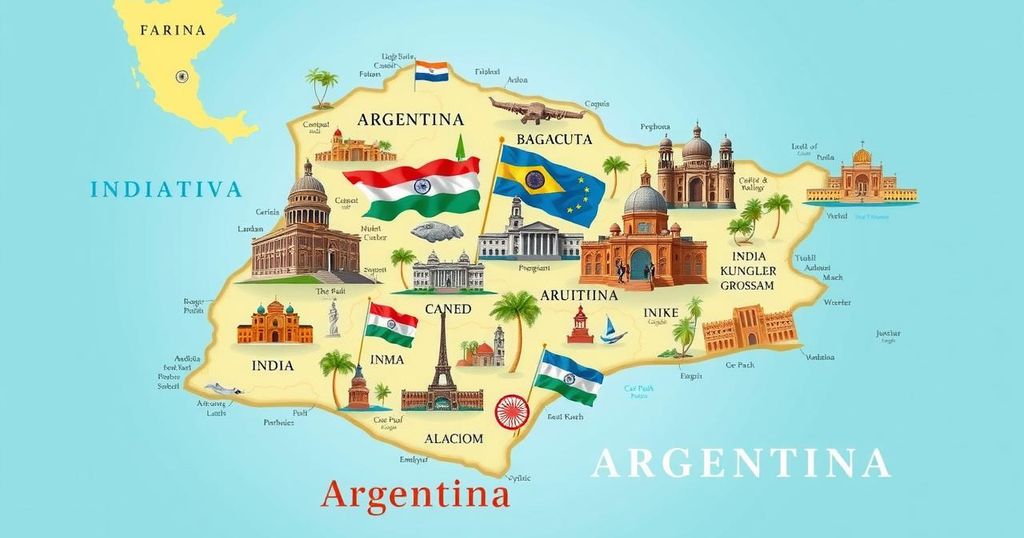economics
Politics
- SPIELVOGEL, AFRICA, AFRICAN NATIONAL CONGRESS, ASIA, COMMERCE DEPARTMENT, CONSERVATIVE PARTY, DEMOCRATS, DIA, DONALD TRUMP, ECONOMICS, ELECTION, EMMANUEL MACRON, EUROPE, GERMANY, GROVER CLEVELAND, INFLATION, JAPAN, KAMAL, KAMALA HARRIS, POLITICS, PRESIDENTIAL ELECTION 2024, SOUTH AFRICA, TRUMP, U. S
Leila Ramsay
0 Comments
Election 2024: Assessing the Potential Impact of Anti-Incumbent Sentiments on the U.S.
The 2024 U.S. presidential election unfolds against a backdrop of global anti-incumbent sentiment, marked by the electoral successes of opposition parties in countries like the U.K., Japan, and South Africa. Despite a robust economy, American voter sentiment is largely negative, leading to a fiercely competitive race between Vice President Harris and former President Trump. Both candidates have delivered pivotal closing arguments to sway undecided voters, while concerns over election integrity and foreign interference persist. The outcome remains uncertain, reflecting the complex dynamics of contemporary elections.
The upcoming election in 2024 is poised to be a significant moment for the United States as it navigates the global trend of anti-incumbency seen in various countries. Worldwide, incumbents have faced substantial backlash, with notable elections resulting in remarkable shifts in power. For instance, the Conservative Party in the United Kingdom was ousted, the African National Congress in South Africa lost its parliamentary majority for the first time, and similar trends manifested in Japan and France, as well as in Germany where the ruling coalition received negative feedback from voters. However, the electoral landscape in the United States presents a complex picture. Despite reports of a robust U.S. economy, with a GDP growth of 2.8% and a stock market at its peak, public sentiment diverges sharply, with many Americans perceiving the economy negatively and expressing concerns over the country’s trajectory. This discontent is evident as the presidential race tightens in the final stretch, with uncertainty looming over the potential for an upset similar to prior elections. As campaigning intensifies, both Vice President Kamala Harris and former President Donald Trump have articulated their final messages to voters, each drawing stark contrasts between their policies. Harris emphasized her commitment to stability and global leadership, whereas Trump reiterated his populist approach aimed at revitalizing the middle class and advocating for stringent foreign policies. The election’s implications extend beyond national borders, influencing U.S. foreign policy and international relations significantly. Analysts and commentators have speculated on how the results will shape global perceptions of the United States. Polling data reveals a divided outlook among voters concerning the integrity of the election process, highlighting underlying tensions that may persist regardless of the outcome. With Election Day fast approaching, speculation reigns as to whether the U.S. will align with the global anti-incumbent sentiment or chart a different course.
The article discusses the political landscape in the lead-up to the 2024 U.S. presidential election, drawing parallels with a broader international context where incumbents in various countries have faced electoral defeats. This comparison sets the stage for understanding how voter sentiment and economic perceptions might affect the election outcome in the U.S. The article highlights the contrasting views on the U.S. economy, the strategies of the candidates, and the potential implications of the election results both domestically and internationally. It also addresses the anxiety surrounding voter confidence and the integrity of the election process, revealing a complex atmosphere as Election Day approaches.
In summary, the 2024 election represents a pivotal moment not only for the United States but also in the context of a global wave against incumbents. While economic indicators suggest a strong performance by the U.S. administration, public sentiment reveals significant discontent that could influence the election’s outcome. The contrasting narratives presented by the candidates indicate a deep divide on key issues, thereby underscoring the election’s stakes for both the nation’s future and its role in the world. As Election Day approaches, the uncertainty surrounding the public’s decision mirrors the unpredictability of election results in recent years, leaving all possibilities on the table.
Original Source: www.cfr.org




Post Comment